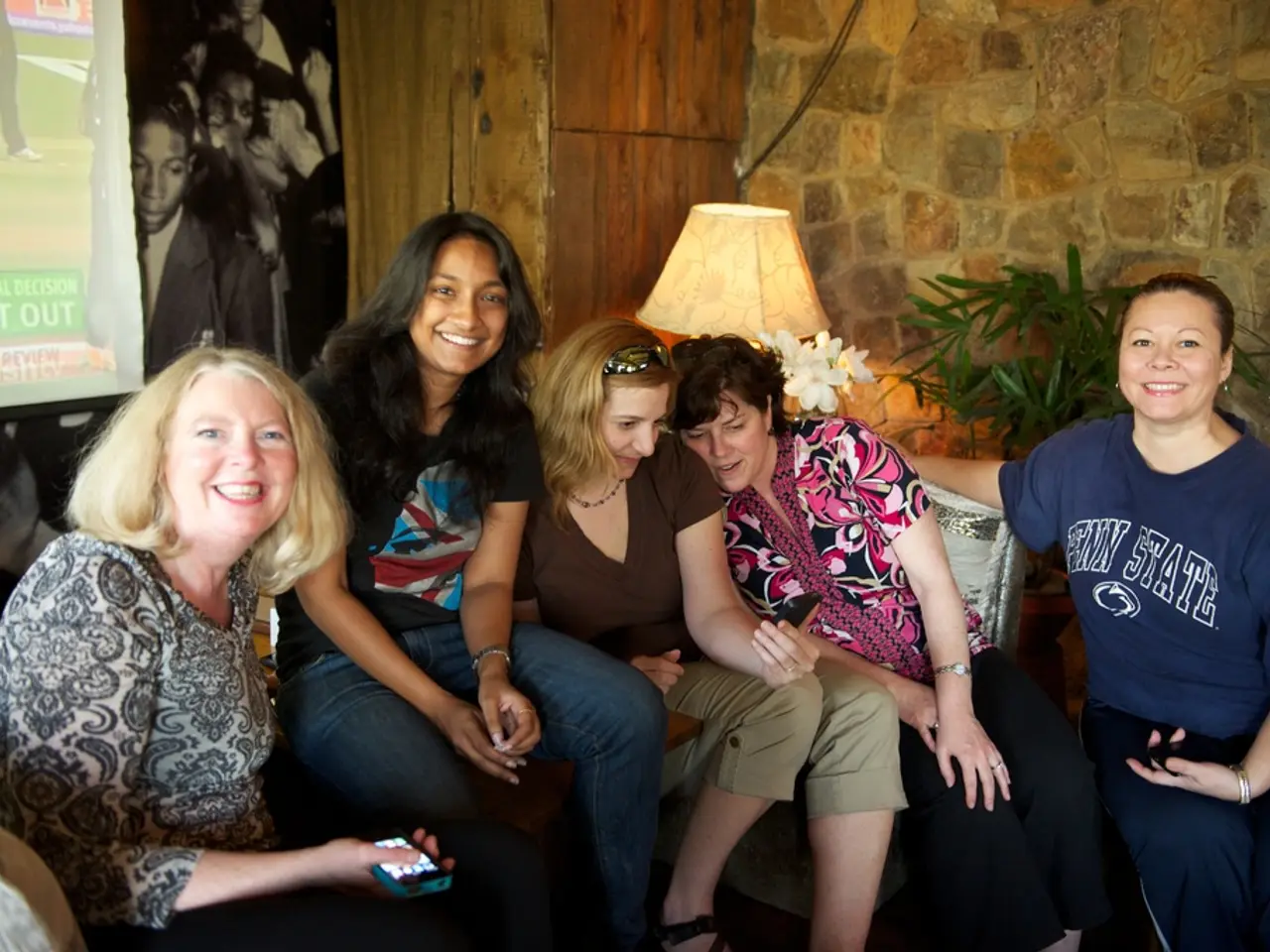Upcoming travel trends in the U.S. for 2025: findings on expenditures, potentially silent on social media sharing
**Americans Embrace Meaningful and Local Travel Experiences in 2025**
As we approach the future, travel trends are shifting towards experiences that are meaningful, shared, and local. According to recent data, 33% of American travellers are turning to travel advisors for assistance in planning their trips, and 25% of these bookings are made for budget management.
Family and multigenerational travel is on the rise, with nearly half (47%) of U.S. travellers prioritising family-oriented trips, showing a 17% increase from 2024. Multigenerational vacations are leading the way as travellers seek shared experiences with relatives across age groups.
Travelling with friend groups is also popular, accounting for 20% of travellers, while solo travel interest has dramatically dropped by 72% compared to 2024.
Inland, rural, and small-town destinations are increasingly popular, with states like Michigan, Wisconsin, Minnesota, and Tennessee becoming favourites. These destinations offer lakefront escapes, mountain retreats, and small-town charm, providing a change from traditional coastal destinations.
More than half (57%) of travellers intend to take multiple short trips within 200 miles of home, driven by cost considerations for airfare and hotels. This trend, known as microcations, is also a discreet strategy to combat rising travel costs without overtly discussing budget constraints.
Beach, lake, and mountain trips remain top favourites, with coastal beach destinations remaining the clear favourite (56%), followed by lakes (27%) and mountains/national parks (29%).
Domestic U.S. travel dominates, with 87% of travellers planning to stay within the U.S. This preference for domestic tourism over international trips is likely due to economic and practical considerations.
Road trips are growing in popularity, favoured due to economic concerns and a preference for flexible cultural experiences, including local cuisine and sightseeing.
Food-focused experiences are on the rise, with travellers showing interest in food tours, cooking classes, and restaurant reservations as part of their travel itineraries.
Romantic and partner travel is also popular, with many travellers (68%) going on trips with romantic partners, especially older groups (e.g., 76% of Gen X and older).
While some travel trends are openly discussed, others are kept quiet. For instance, there is a 72% decline in solo travel, suggesting a quieter move away from independent journeys towards group-centric travel. Microcations are also popular, but their financial motive is often not openly discussed.
Environmental and sustainability concerns are influencing destination and activity selections, but such eco-conscious choices may be quietly shaping travel behaviours without wide fanfare. The desire for disconnection and mental wellness through nature trips and national parks is a subtle but strong undercurrent shaping travel choices.
These trends indicate Americans are prioritising meaningful, shared, and local experiences while simultaneously adapting to economic and environmental realities with discretion. Family, friends, nature, food, and intimacy dominate bookings, while budget awareness and sustainability subtly reshape their travel behaviours.
- Travel advisors are assisting 33% of American travelers with trip planning, and 25% of these bookings are made for budget management.
- More than half (57%) of travelers intend to take multiple short trips, known as microcations, within 200 miles of home due to cost considerations for airfare and hotels.
- Food-focused experiences, such as food tours, cooking classes, and restaurant reservations, are becoming more popular as part of travel itineraries.
- Environmental and sustainability concerns are influencing destination and activity selections, subtly shaping travel behaviors without wide fanfare.
- Romantic and partner travel is popular, with many travelers (68%) going on trips with romantic partners, especially older groups. Additionally, the desire for disconnection and mental wellness through nature trips and national parks is a subtle but strong undercurrent shaping travel choices.






